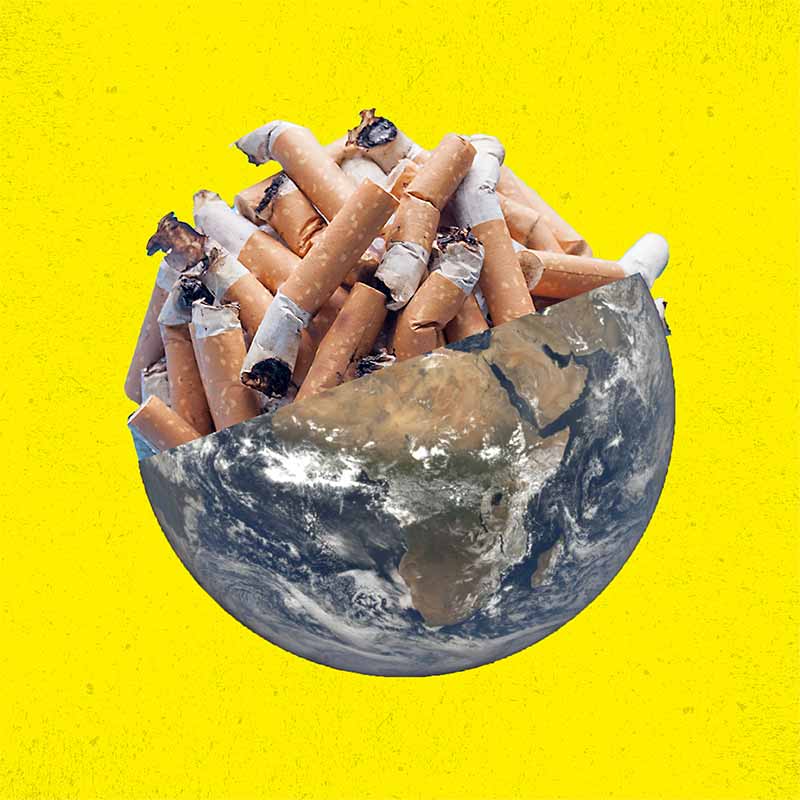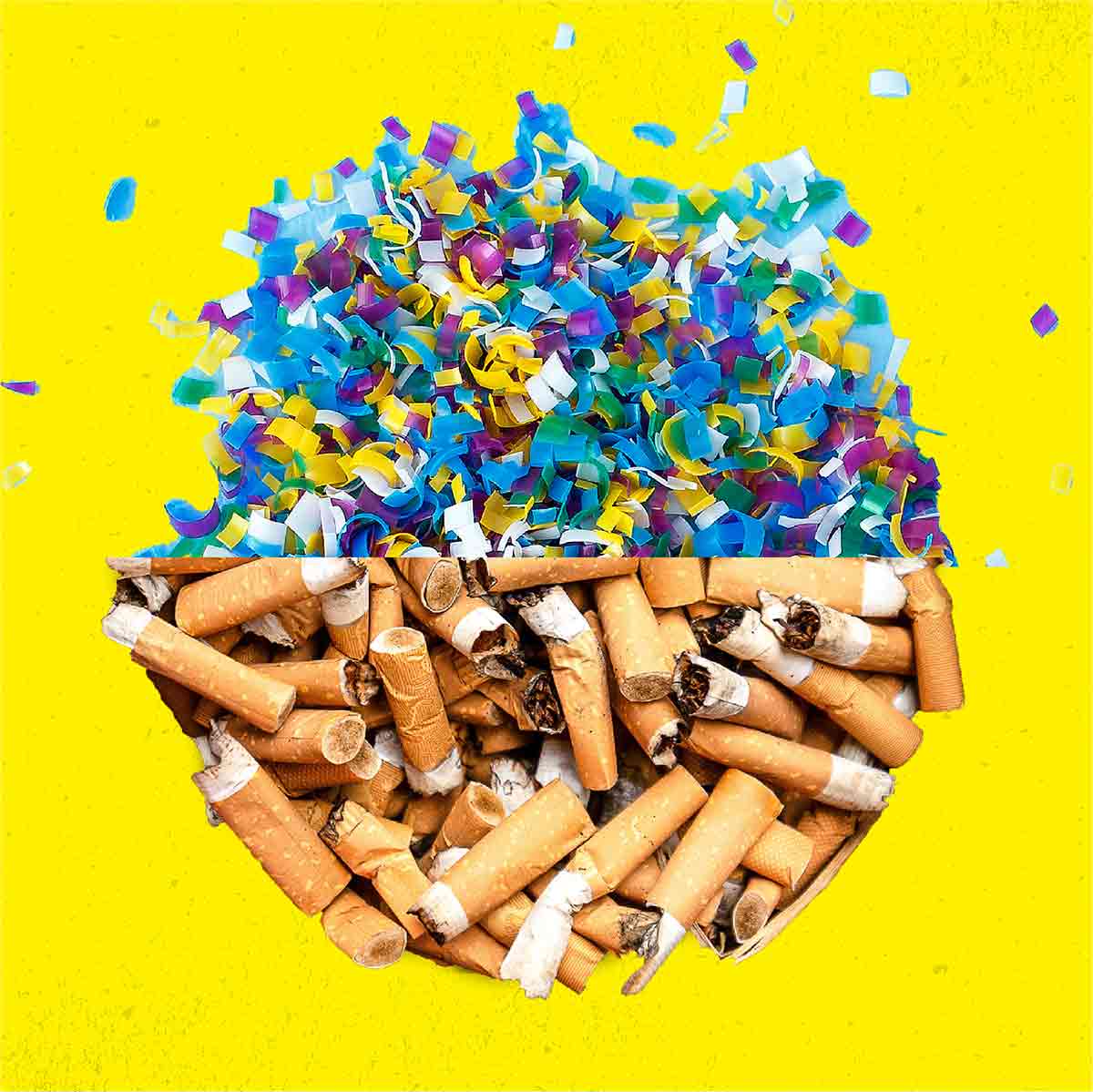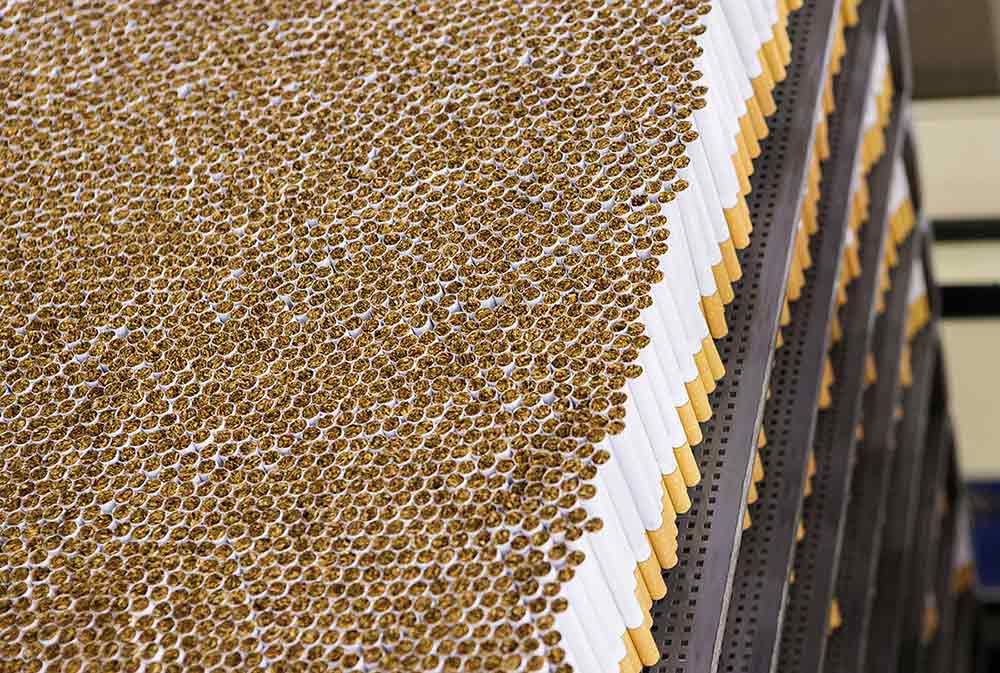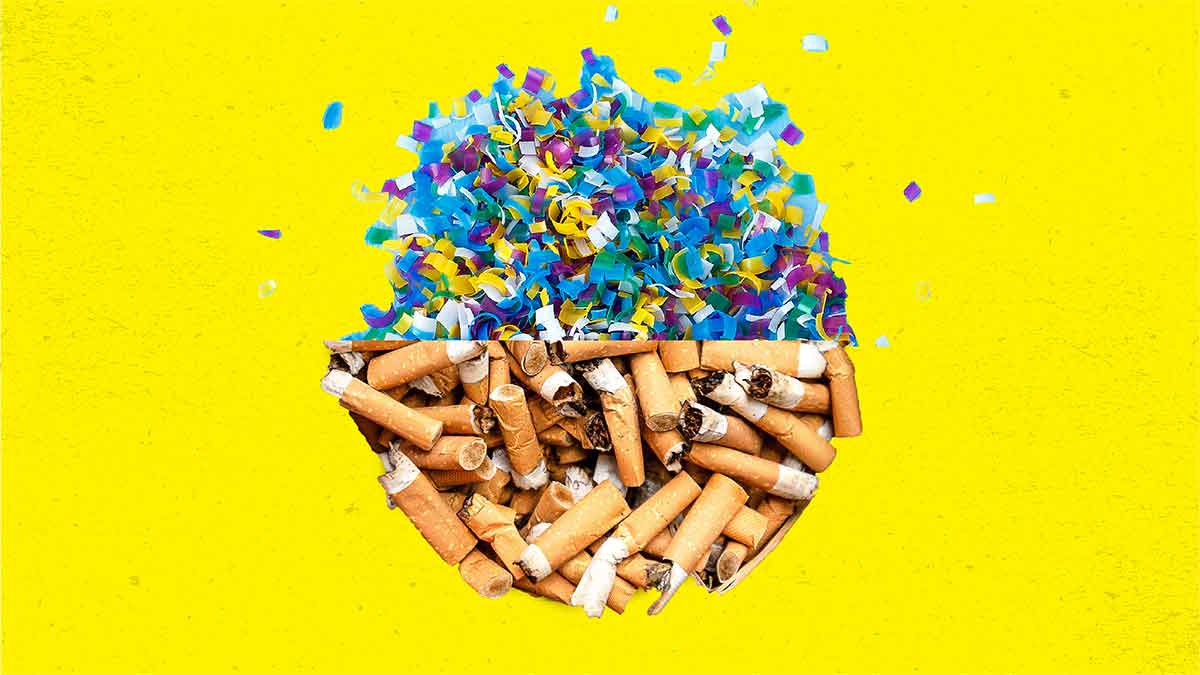- Resources
- News
-
-
Get Email Updates
Sign up for STOP's emails and never miss an update on our latest work and the tobacco industry's activity.
-
Get Funding
Ready to tackle industry interference? You could be eligible for a grant.
-
Share a Tip
Do you have information on tobacco industry misconduct in your country? Let us know.
-
Get Email Updates

Tobacco control policies and environmental policies bolster each other. When one is strong, the other benefits.
Take, for example, smoke-free policies. If a government were to implement a policy that prohibits smoking in public places, it would not only improve public health, it would lead to better air quality and reduced toxic litter from cigarette butts. And if legislation were to pass that banned cigarette filters to reduce plastic pollution, some smokers may quit and younger people may be less likely to start.
When health and environmental policies are designed to complement one another, policymakers can maximize the benefits to both public health and the environment. Here are two ways policymakers and environmental and tobacco control advocates are pushing for this important integration right now.
COP10 delegates are urging governments to address tobacco-related environmental harm
The World Health Organization Framework Convention on Tobacco Control (WHO FCTC) is a global health treaty that aims to reduce tobacco use. It provides guidance on ways the 183 Parties to the treaty can ban tobacco advertising, keep the tobacco industry out of policymaking, use taxes to reduce the demand for tobacco, regulate the contents of tobacco products and much more.
The environmental impact of tobacco received special attention at COP10, the latest Conference of the Parties (COP) to the WHO FCTC that took place in February 2024. The United Nations Environment Programme (UNEP) addressed COP10 to emphasize the environmental harms caused by tobacco—from the millions of hectares of forests that are cut down every year to grow tobacco to the three million transatlantic flights’ worth of CO2 emitted annually for tobacco production and distribution.
At COP10, delegates to the Treaty made the collective decision to strengthen Article 18, which focuses on protection of the environment and health with respect to tobacco cultivation and manufacture.
Dr. Adriana Blanco Marquizo, Head of the WHO FCTC Secretariat, said, “The decision urges Parties to take account of the environmental impacts from the cultivation, manufacture, consumption and waste disposal of tobacco products…,” urging governments to consider the environmental harms that take place throughout tobacco’s entire supply chain. She also directly called for more integration between tobacco control and environmental policies, adding that Parties should “…strengthen the implementation of this article, including through national policies related to tobacco and protection of the environment.”

Almost all commercial cigarettes have a filter that contains plastic. With 8.5 million cigarette butts being disposed of every minute, they’re a major source of plastic pollution.
What might these recommendations look like in action? The decision emphasizes that fully implementing Article 18 could bolster governments’ efforts to protect the environment. It could encourage them to ban plastic cigarette filters, which are the most-littered single-use plastic. It could help governments reduce pollution and litter from e-cigarettes and heated tobacco products, for which the disposal of batteries and plastic parts is becoming a massive environmental problem. It could also encourage governments to ban tobacco companies’ greenwashing, which helps preserve the status quo by creating the misperception that the tobacco industry is helping the environment, rather than destroying it. The decision at COP10 also reminds countries they can use litigation specified in Article 19 to hold the industry accountable for the costs of the damage it causes to the environment.
In short, committing to implementing Article 18 would ensure governments are seriously considering the environmental consequences of tobacco production and use—not just the health impacts—and creating complementary health and environmental legislation accordingly.
The WHO FCTC is first and foremost known as a health treaty. But the delegates’ recent decision highlights its clear alignment with the need to also protect our planet and the opportunities to reduce environmental damage. This serves as an important step in holding the industry accountable for its environmental harms, while also improving public health.
Advocates are calling for cigarette filters to be included in the forthcoming “Plastics Treaty”
Plastic pollution is a serious global environmental threat. As the UNEP points out, plastic pollution negatively affects “the environmental, social, economic and health dimensions of sustainable development.” That’s why the UNEP formed an Intergovernmental Negotiating Committee (INC) on Plastic Pollution. The INC’s task is to develop a “legally binding instrument” to address the problem of plastic pollution. This “instrument” is often referred to as the UN Plastics Treaty, and aims to help countries produce and consume plastics sustainably.
Members of the INC have met three times since the formation of the group in 2022 to draft the treaty, and will meet again this month, and in November 2024. At this month’s meeting, the INC will discuss and negotiate the current draft text of the treaty.
The Stop Tobacco Pollution Alliance (STPA), a coalition of 100 public health and environmental organizations, as well as WHO, have pointed out that cigarette filters and other toxic plastics from tobacco industry products must be included in the list of single-use problematic plastic products to be banned by the treaty, given that the national jurisdictions that have implemented single-use plastic bans have omitted cigarette filters.
Almost all commercial cigarettes have a filter that contains plastic. With 8.5 million cigarette butts being disposed of every minute, they’re a major source of plastic pollution. They leach toxic chemicals into soil and waterways and break down into microplastics. Even worse? Filters have no health benefits for smokers, and may even make smoking more harmful. In addition, flavored filters make cigarettes more appealing to young people. Today, they function mainly as an industry marketing tool to misleadingly imply that filtered cigarettes are “safer.”
Because commercial cigarette filters offer no benefits and generate so much single-use, toxic plastic waste, WHO and the STPA are calling for the UN Plastics Treaty to include them on the list of plastic products to be banned immediately. Banning filters is an example of an integrated policy that serves both tobacco control and environmental goals.
Health and the environment are interconnected—and policies can protect both at the same time
Polices that reduce tobacco use help protect the environment as well as health. And a healthier environment, in turn, is necessary for public health to thrive. There are many opportunities to develop and implement mutually beneficial policies that deliver progress on both issues, and so many benefits await.
We’re excited to see this integration taking place on the global stage, and to support more coordination and cooperation in the future.




